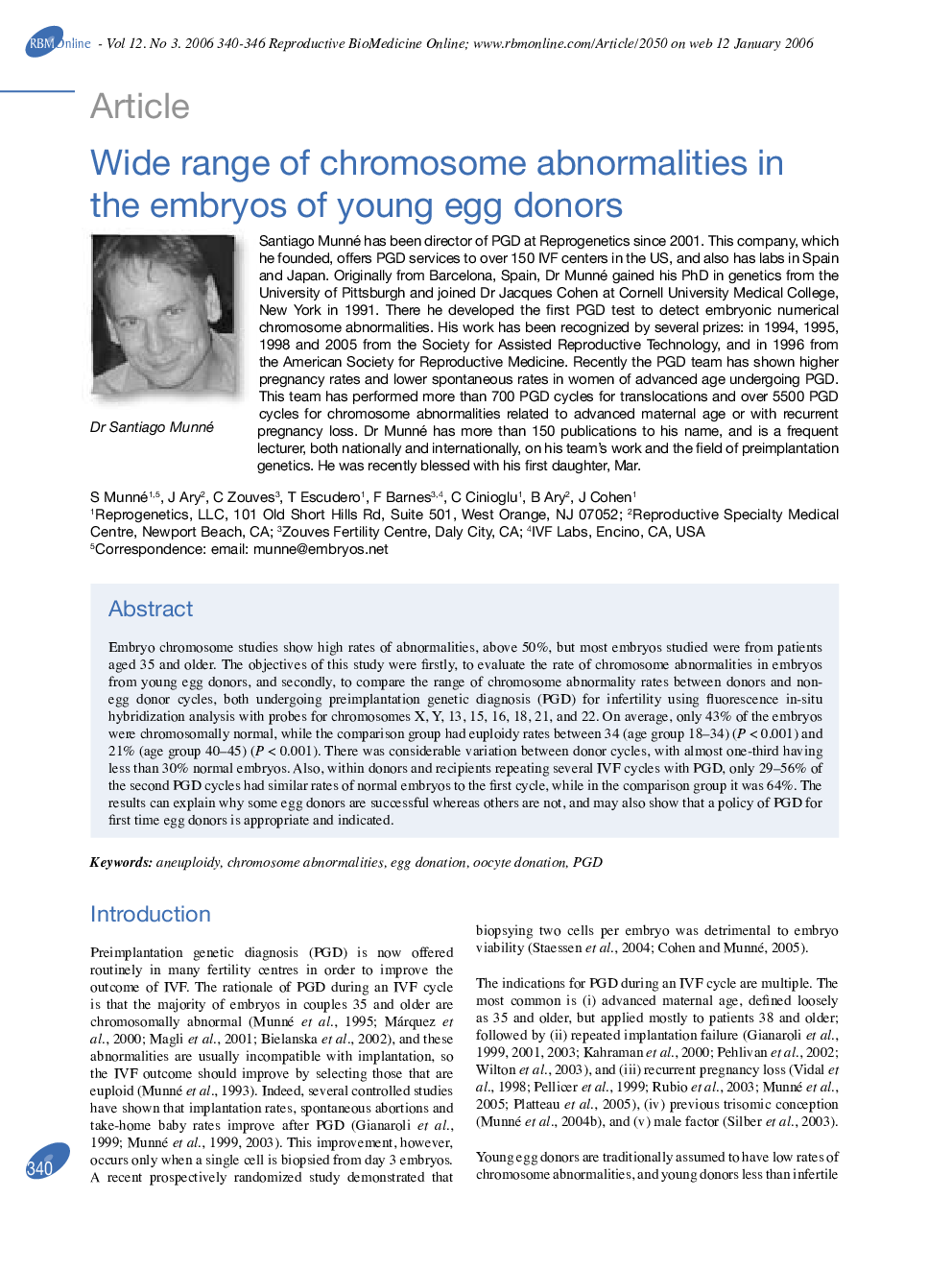| Article ID | Journal | Published Year | Pages | File Type |
|---|---|---|---|---|
| 3973565 | Reproductive BioMedicine Online | 2006 | 7 Pages |
Embryo chromosome studies show high rates of abnormalities, above 50%, but most embryos studied were from patients aged 35 and older. The objectives of this study were firstly, to evaluate the rate of chromosome abnormalities in embryos from young egg donors, and secondly, to compare the range of chromosome abnormality rates between donors and non-egg donor cycles, both undergoing preimplantation genetic diagnosis (PGD) for infertility using fluorescence in-situ hybridization analysis with probes for chromosomes X, Y, 13, 15, 16, 18, 21, and 22. On average, only 43% of the embryos were chromosomally normal, while the comparison group had euploidy rates between 34 (age group 18–34) (P < 0.001) and 21% (age group 40–45) (P < 0.001). There was considerable variation between donor cycles, with almost one-third having less than 30% normal embryos. Also, within donors and recipients repeating several IVF cycles with PGD, only 29–56% of the second PGD cycles had similar rates of normal embryos to the first cycle, while in the comparison group it was 64%. The results can explain why some egg donors are successful whereas others are not, and may also show that a policy of PGD for first time egg donors is appropriate and indicated.
